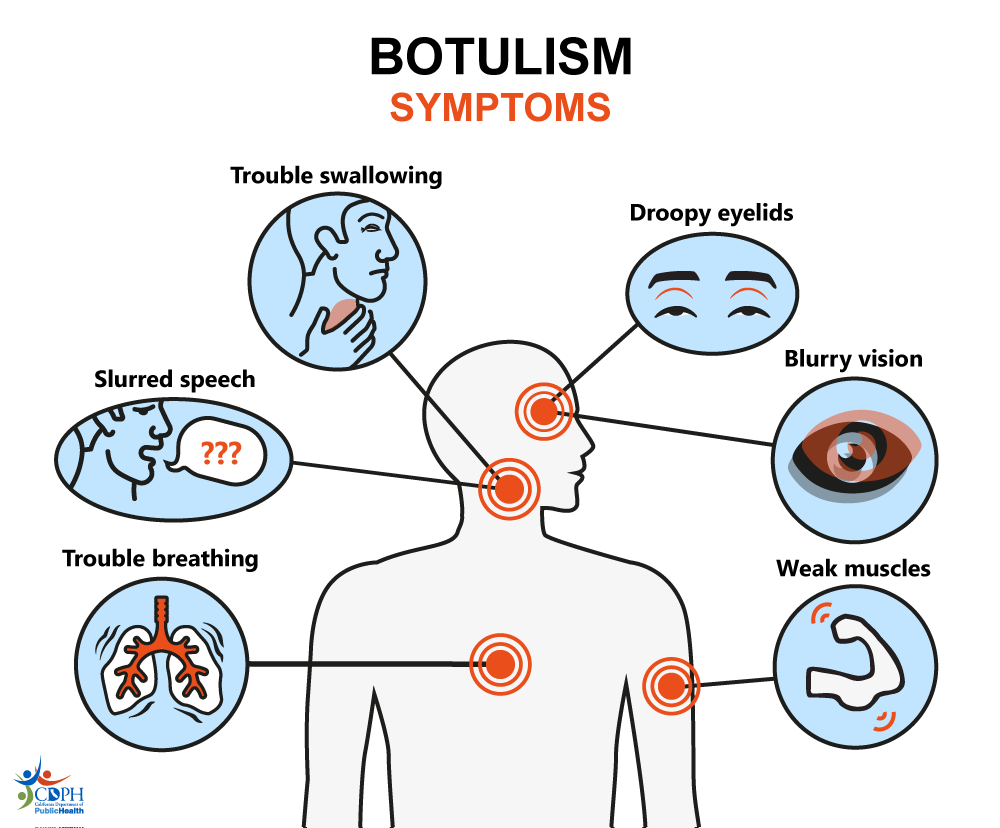What is botulism?
Botulism is a rare but serious disease caused by a toxin (poison) that is made by bacteria called Clostridium botulinum (C. botulinum). This botulinum toxin attacks the nervous system and causes paralysis in children and adults.
People who become sick with botulism may have:
- Droopy eyelids
- Double or blurry vision
- Muscle weakness in the face
- Trouble swallowing
- Slurred speech or trouble speaking
- Weakness in the arms and legs
Botulism can also weaken the muscles that control breathing. Without treatment, botulism can lead to death.
Babies younger than 15 months old may get
infant botulism and may appear tired, show little facial expression, have a weak cry or poor head control, and appear "floppy" because they can't control their muscles.
If you or someone you know has symptoms of botulism, call 911 or go to the emergency room immediately.
